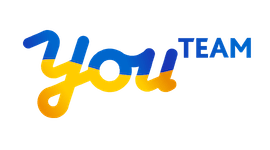This Is How You Interview a Front End Developer
Experience
Rate
English level
Seniority
Hire the best 361 Front End engineers with YouTeam
Sort by:
- Relevance
- Experience
- Last Update
- Rate

Maxim S.
Team Lead HTML/CSS Developer/Middle Front End developer

Max A.
Front End/Fullstack/Angular developer

Olena D.
Front End Developer

Maxim B.
Full Stack Ruby on Rails and AngularJS Developer

Pavlo B.
Front End Developer with experience in writing readable,...

Petro V.
Front End Developer with work experience with HTML, CSS...

Vitaly K.
Front end developer

Vitaliy S.
Senior Front end & Back end developer with strong...

Alexander P.
Full stack web developer with more than 6 years and 1500...

Atanas A.
Front end monster
No-one really matches your needs?
Normally we are able to pro-actively find any given talent within 72 hours.
This Is How You Interview a Front End Developer
The most challenging part of front-end development is the ever-changing tools and techniques that are used to build the front end of a website. Therefore, truly professional Front end developers need to stay up-to-date with those changes.
Front end development outsourcing requires a thorough pre-vetting of the candidates. It is extremely important to know who you’re going to work with, in order to avoid the confusions and get the desired result eventually. It may take some time and efforts till you find an experienced front end developer, but you will definitely benefit from the advantages of software outsourcing, namely lower operating expenditures, flexibility, better efficiency etc.
Searching for Front end programmers? To shortlist the best candidates, you need to check them for skills and experience that are relevant to front-end development in general and your project in particular. In this article, we are going to focus on such skills.
What does a Front End Programmer Need to Know?
- HTML/CSS. These two languages are the basic building blocks of front-end development. With HTML, front-end developers create web pages, whereas CSS defines the page layout, colour, fonts, etc.
- JavaScript/jQuery. While HTML and CSS define how the page looks like, JavaScript defines how it functions. jQuery is a JavaScript library, which contains plugins and extensions that facilitate the use of JS on a web page.
- CSS and JavaScript frameworks, such as Bootstrap or AngularJS. These are collections of CSS or JS files that provide the code for common functionality, such as login forms. A professional front-end developer needs to know the differences between the frameworks and where it’s best to use a specific framework. You can also ask your candidate to tell about the frameworks that they used for their previous projects.
- Responsive design principles. Responsive design is an approach to web design that makes web pages readable and adjustable across a wide variety of devices, from desktop computers to smartphones.
- Building and automation tools, such as Grunt or Gulp. These tools ensure good performance and optimization of the web pages.
- Browser developer tools. As the web pages are viewed with the help of web browsers, front-end programmers should have an understanding of the built-in browser developer tools, such as an inspector and a JavaScript console. With the inspector tool, you can check and edit the HTML and CSS on the webpage and see the changes live as they happen. The JavaScript console allows you to view any errors that occur when the browser is trying to execute your JS code.
This is a basic skill set that you should take into account when interviewing a front-end developer candidate. Of course, your project may require the deeper skills, so adjust your questions accordingly. We wish you good luck in finding the best front-end programmer.


